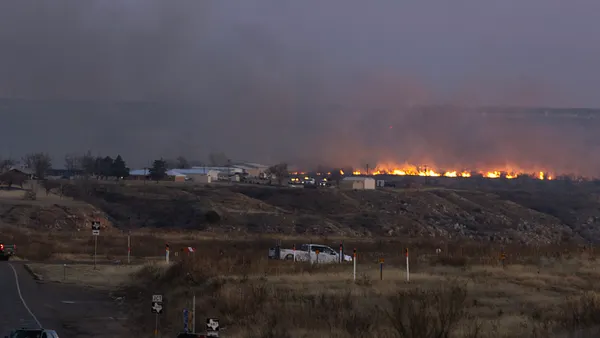Dive Brief:
- Two suspects have been charged in federal court with planning a firearms attack on five Baltimore Gas and Electric substations in a plot to “completely destroy” the city, according to the FBI.
- BGE says it is working closely with the FBI and reassured customers Monday “there are no currently known threats to any of our facilities.”
- Had the attack been successful, the resulting outage could have been “significant and lengthy,” Kevin Perry, former director of critical infrastructure protection at Southwest Power Pool, said in an email. “The planned attack and intended consequences is mostly feasible.”
Dive Insight:
Law enforcement officials say the planned attack was based on race and at least one suspect is a member of a neo-Nazi group.
“Driven by their ideology of racially-motivated hatred, the defendants allegedly schemed to attack local power grid facilities,” Matthew Olsen, assistant attorney general for national security, said in the U.S. Department of Justice release announcing the arrests of a Maryland woman and Florida man.
“This planned attack threatened lives and would have left thousands of Marylanders in the cold and dark,” Maryland U.S. Attorney Erek Barron said in a statement. “We are united and committed to using every legal means necessary to disrupt violence, including hate-fueled attacks.”
Exelon subsidiary BGE is “working closely” with the FBI, state and local investigators, the utility said.
“The substations are not believed to have been targeted out of any connection to BGE or Exelon, or because of any particular vulnerability,” the utility said. “We remain focused on improving the resiliency of the grid by stocking critical back-up equipment while designing a smarter grid that isolates damage and routes power around it.”
The partnership between the electric utility sector and government is “key to our defenses,” Edison Electric Institute Senior Vice President of Security and Preparedness Scott Aaronson said in a statement. The group represents investor-owned utilities.
“We will work closely with law enforcement at all levels to ensure these criminals are prosecuted to the fullest extent of the law,” Aaronson said.
The charging documents, filed in the U.S. District Court for the District of Maryland, name Sarah Beth Clendaniel and Brandon Clint Russell as suspects in the planned attack. Russell previously founded a local National Socialist group, the documents say.
In a recorded phone conversation, FBI agents said, Clendaniel talked about attacking a “ring” of substations around Baltimore that “would completely destroy this whole city.”
The federal government warned last year that domestic terrorists had developed “credible, specific plans” to attack the U.S. power grid. The electrical system is a particularly attractive target given its interdependency with other infrastructure sectors, officials warned.
Since then, there have been a spate of attacks. Multiple substations in Washington were damaged on Dec. 25, leading to more than 14,000 outages on the Tacoma Power and Puget Sound Energy systems. And a North Carolina firearms attack earlier in the month knocked power out to about 45,000 Duke Energy customers.
The electric grid is designed with high degrees of redundancy so that the loss of a single piece of equipment should not cause a widespread outage. But attacks on multiple points can disrupt the flow of power, experts say.
“Without a BG&E transmission map, I don’t have enough details to say for certain the attack would achieve the intended results,” Perry, Southwest Power Pool’s former director of critical infrastructure protection, wrote in an email. “But if the five targeted substations substantially comprised the high voltage feed to the Baltimore distribution network, then yes, the resulting outage would have been significant and lengthy.”














